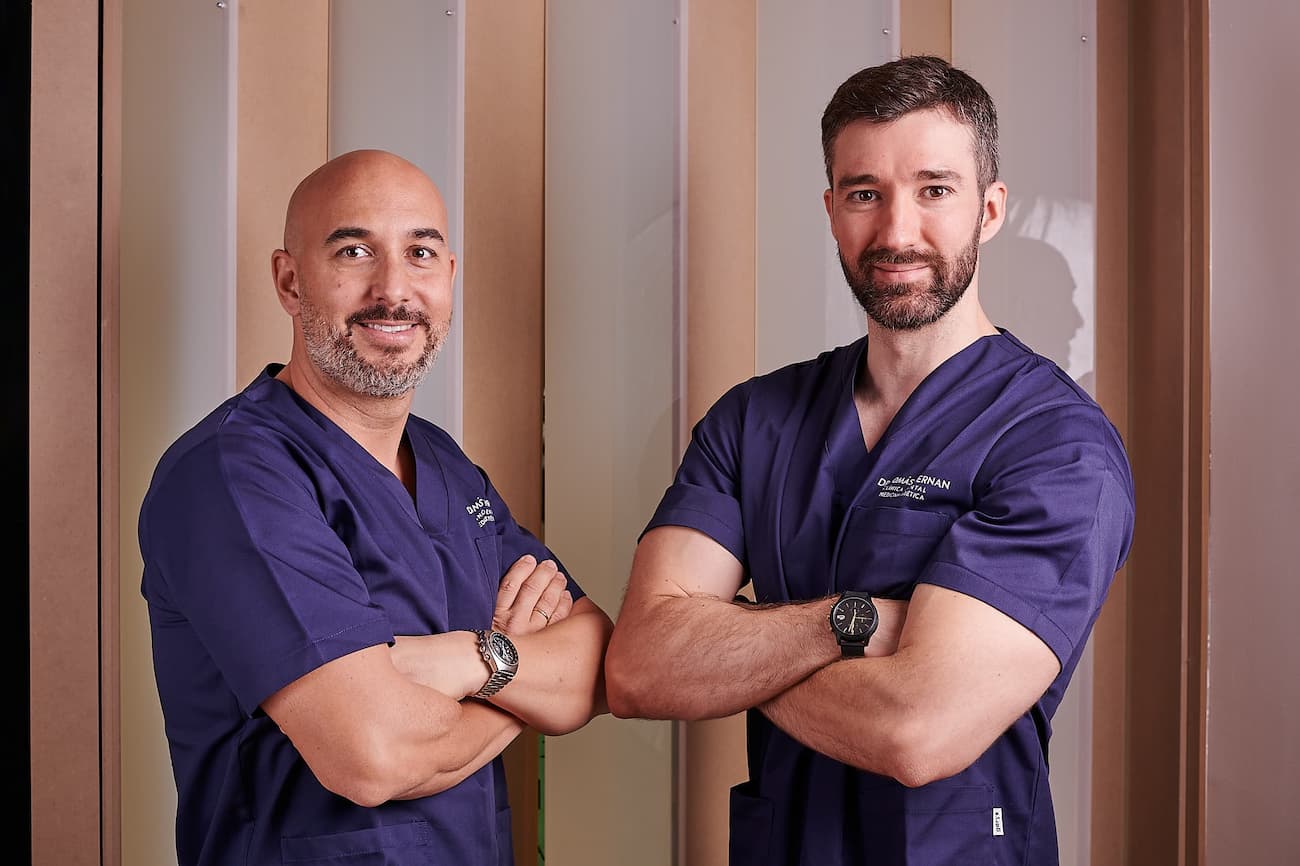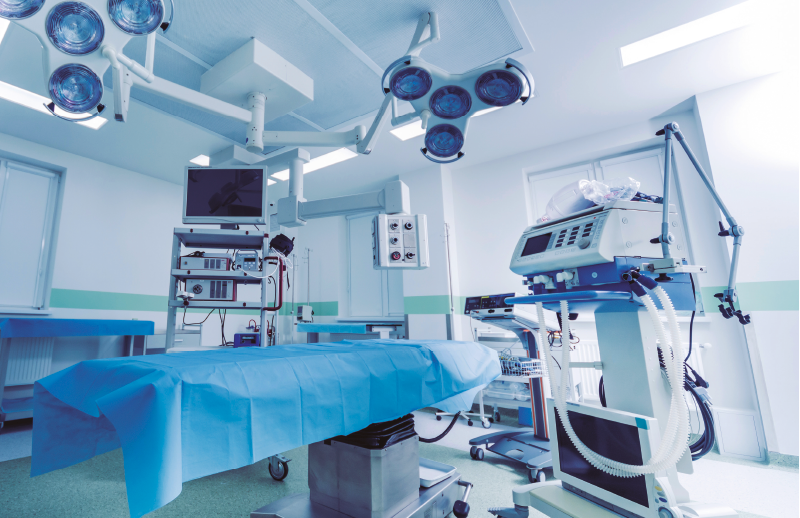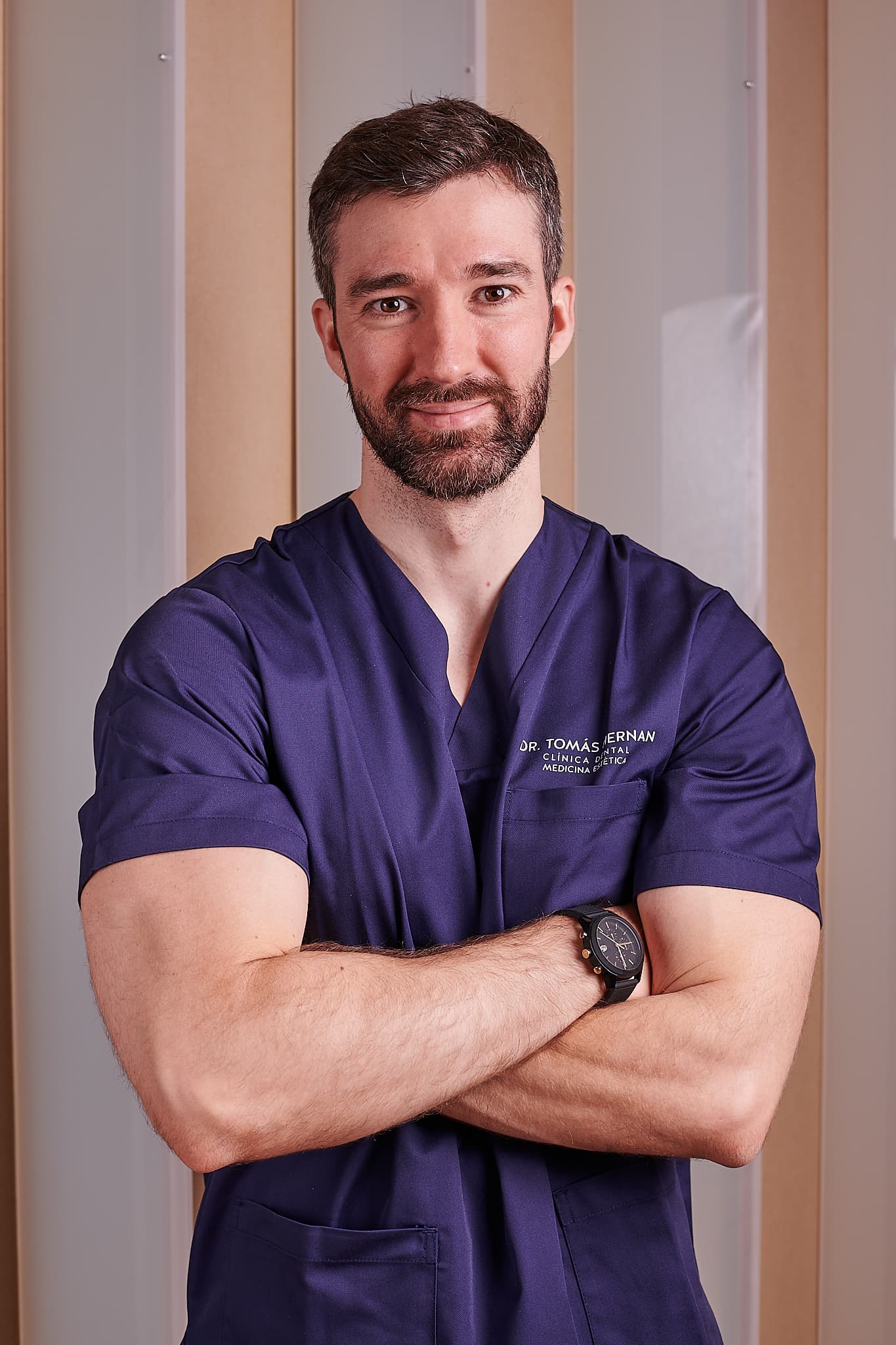Call us:+34 915 113 521 | +34 613 387 590
Autobús 35, 135, 118, E1 Metro: La Peseta (linea 11)
Autobús 35, 135, 118, E1 Metro: La Peseta (linea 11)
Despite the fact that most dental procedures are carried out under local anesthesia, there are other possibilities that contribute to making the process more comfortable for patients when well:
– Dental treatment generates a high level of anxiety,
– Or the duration or complexity of the procedure justifies other techniques that facilitate the work of the professional and the process for the patient.
It is for this reason that the Dental Clinic of Dr. Tomás Hernán has the possibility of operating under general anesthesia or sedation in a hospital environment for those patients who need it. Dental treatments under general anesthesia are a very successful option in certain situations or for certain types of patients, as they will facilitate dental treatment comfortably and safely.
Ask us for information about Dental Treatments under Anesthesia. We will contact you to advise you.


First of all, we must differentiate between:
– Local anesthesia. It is a technique used to prevent the patient from suffering pain in a specific area of the mouth during treatment. It is the technique with which we normally perform the procedures in the Dental Clinic.
– General anesthesia. It consists of the administration of drugs intravenously, which causes a temporary loss of consciousness in the patient during the treatment. This type of anesthesia is used in complex surgical interventions to avoid pain and anxiety. This technique must be performed in a hospital environment to ensure patient safety.
– Sedation. In this case, the anesthetist administers sedative drugs by inhalation (nitrous oxide), ingestion (pill) or intravenous injection. There are different sedatives that induce moderate or deep sedation, depending on the patient’s circumstances. In addition, sedatives can be administered before or during dental treatments.
Depending on each case, there is the option of making prostheses that are placed immediately (either on the mucosa or on the implants placed in surgery).
Our philosophy is to provide patients (as far as possible) with their treatment; Therefore, if possible, you will always have a prosthesis after the intervention.
The patient shows lower levels of anxiety before the procedure.
The professional performs the technique in an ideal environment.
For greater patient safety, all these treatments are carried out in a hospital environment (Ruber International Hospital) where we have a fully equipped operating room and we have the collaboration of our anesthetist. Likewise, we have a team of nurses and assistants who collaborate to guarantee all the necessary means in each surgery.

Within the medical staff of Dr. Tomás Hernán’s collaborators is Dr. David Callejo Crespo: a doctor and specialist in Anesthesiology, Resuscitation and Pain Therapy.
Both collaborated for years at the Gregorio Marañón General University Hospital, having performed together a large number of surgeries, thus existing perfect coordination between both specialties for the benefit of the patient.
On the one hand, all dental tests will be necessary (as if it were a procedure with local anesthesia):
On the other hand, you will need to perform a preoperative study:

Our Patient Care team will coordinate everything to make it as easy as possible for you. We have the option of managing a collection and transfer service to your home if you wish.
You must fast for eight (8) hours before the indicated time for the start of the intervention. The last meal should be light (without fat or alcohol). You should also avoid tobacco.
You must go without nail polish, or creams (face or body) applied the same day of the intervention.
Remember not to bring metal objects and wear comfortable clothes and shoes.
EIt is essential that you come with your valid national identity document (DNI) or passport.
If possible, it is recommended that someone you trust accompany you. You should not drive any type of vehicle for the hours following surgery.
You will go to the Ruber Internacional Hospital, located at Calle Juan Bravo 49 in Madrid, notifying your presence at the center’s Admission so that you can be transferred to your room.
When the surgical and anesthetic team are ready, you will be transferred to the operating room; where the scheduled intervention will be performed under general anesthesia.
Subsequently, you will be transferred to the Post-Anesthesia Resuscitation Unit (URPA), where your evolution will be monitored until you can be referred back to your room or to the Day Hospital, where it will be proven that you tolerate liquids and solids to be able to discharge you home.
Our Patient Care team will contact you the day after the intervention to inquire about your condition.
You will have a contact mobile phone at all times to be able to manage any questions.
The week after the procedure, Dr. Tomás Hernán will see you in consultation to make sure that your evolution is correct.
First of all, you must request an appointment for consultation at the Dental Clinic of Dr. Tomás Hernán to be able to assess your case and solve all your doubts about it.
Ask us for information about Dental Treatments under Anesthesia.
